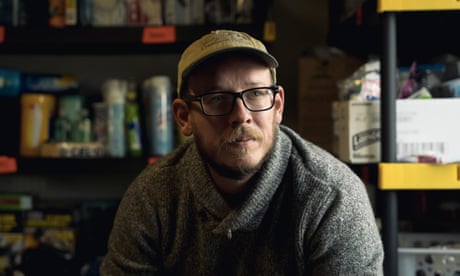- by foxnews
- 03 Apr 2025
North Carolina grapples with holding election in hurricane disaster zone
North Carolina grapples with holding election in hurricane disaster zone
- by theguardian
- 21 Oct 2024
- in politics

In a normal life Jon Council would be holding his last campaign fundraiser of the 2024 cycle, exhorting local small business owners in Watauga county to back his bid to become a county commissioner over a plate of spaghetti and garlic bread.
But in the wake of the devastation wrought by Hurricane Helene, which left western North Carolina reeling from massive floods that swept away buildings, downed power lines, and left thousands of people stranded in their homes, life is anything but normal in this part of the Appalachians. Instead of wooing donors, the candidate is seeking winter feed for sheep.
With just over two weeks to go to election day, Council is wrestling with a problem that is common to anyone running for office in this rugged mountainous stretch of western North Carolina, from local candidates like him all the way up to Kamala Harris and Donald Trump. How do you hold an election in a disaster zone?
Can you meaningfully talk to people about their electoral choices at a time when they are fighting for daily survival? How do you reach them, let alone engage them, when the internet is down, there is scant cellphone coverage, the roads are broken, power is still out, and mail boxes swept away?
Council, who is unaffiliated with any political party, was gearing up his campaign for the final stretch when Helene struck on 26 September. The flooding and landslides killed at least 115 people in North Carolina, with almost 100 still missing.
After Helene, campaigning was put on hold. The team immediately segued to disaster relief, helping rescue families trapped in their homes and hiking into remote areas to deliver food, water and critical medical supplies.
And now, as winter sets in with early snows already falling, he is scouring for sources of fresh hay to donate to farmers in danger of losing their animals after bale supplies of vital winter feed were destroyed in the floods.
They are cranking their social media election posts back up, working out ways to encourage people to vote early or through absentee ballots, and debating whether to send out a mailer. They still feel odd about that.
In her office, the director of the board of elections, Sheila Ollis, is doing all she can to mitigate the fallout of the hurricane. Of the 19 designated polling stations in the county, 14 were seriously damaged.
New emergency voting arrangements have been put in place by the state board of elections covering the 13 most devastated counties. The new rules balance access to the polls with the safety of poll workers and voters.
Early voting days, which began on Thursdaywith all but four of the 80 sites open in the hurricane stricken area, have been boosted. In Avery county a second early polling station has been added in the heart of the worst impacted area.
But voting hours have been shortened, ending at 4.30pm to avoid people driving in the dark.
For the most part, she tries to block the noise out. Despite the extraordinary collision of arguably the most consequential presidential election in modern times and the worst natural disaster the area has ever seen, Ollis is determined to remain calm and do her job.
- by foxnews
- descember 09, 2016
Flight passenger says man deliberately squatted in window seat, ignites social media debate
An airline flyer said a seat squatter tried to tell her to swap seats with him, but she stood her ground, prompting a social media debate. A travel expert weighs in.
read more





